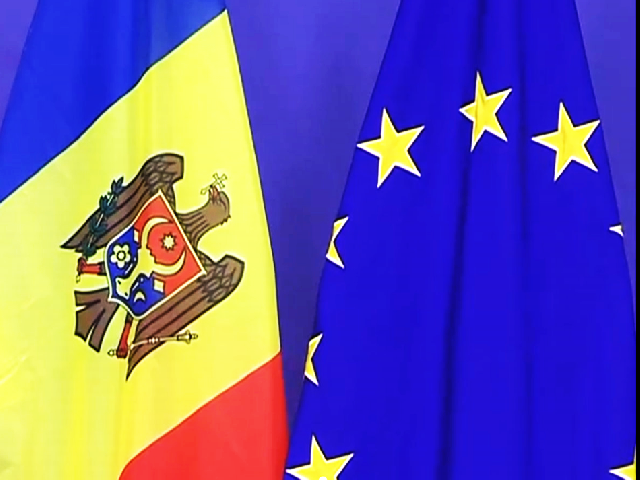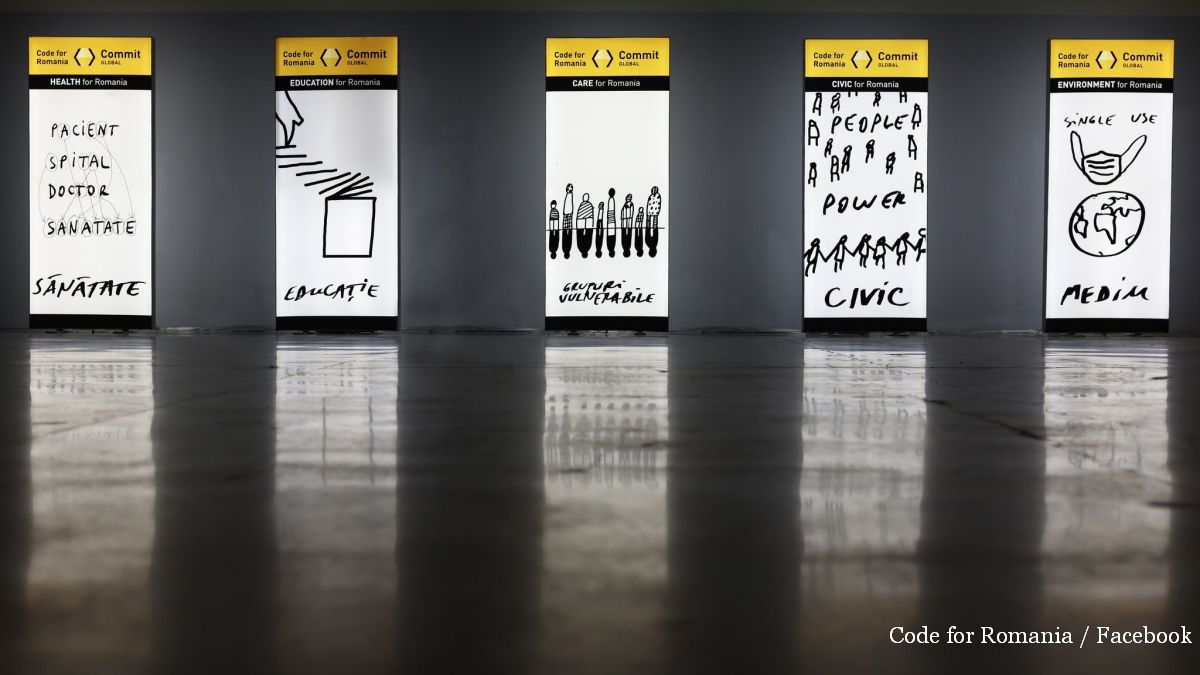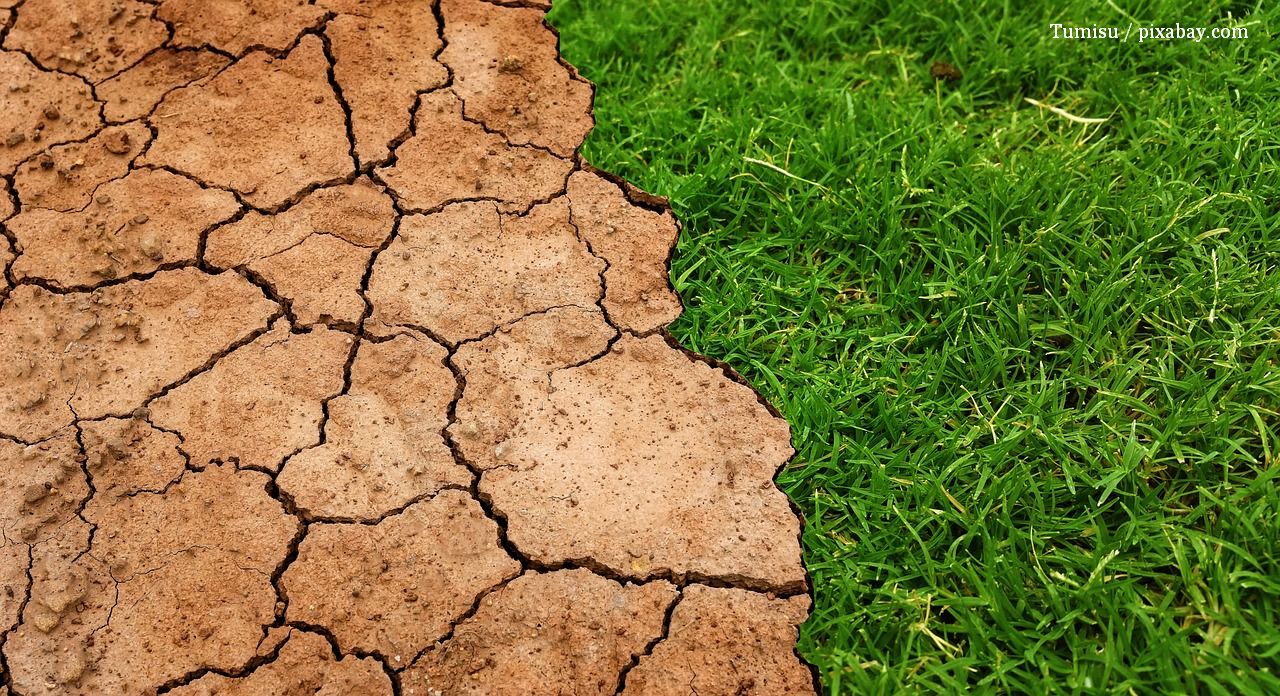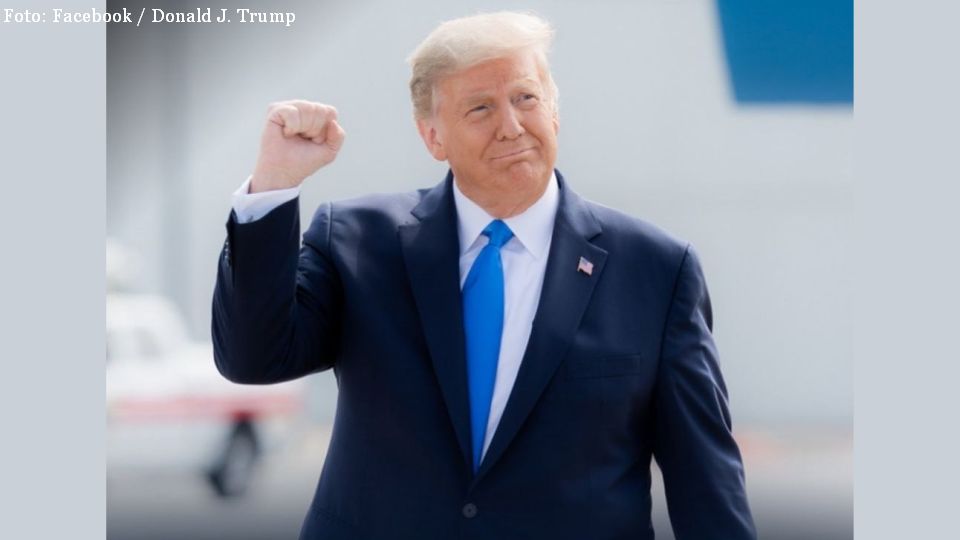The Republic of Moldova – On the Fast Track to EU Accession
With only 25 days remaining until the Eastern Partnership summit to be held in Vilnius, Lithuania, where the Republic of Moldova is due to initial the Association Treaty with the European Union, Chisinau officials have voted in favour of moving forward wi

Corina Cristea, 08.11.2013, 12:43
With only 25 days remaining until the Eastern Partnership summit to be held in Vilnius, Lithuania, where the Republic of Moldova is due to initial the Association Treaty with the European Union, Chisinau officials have voted in favour of moving forward with their country’s bid to join the EU.
The vote was cast not in voting polls, but rather in the street, where some 100,000 Moldovans voiced their support for the efforts of the pro-European political class, despite several extremely vocal propagandistic accusations of the Communist opposition against the EU. The Communists, together with the breakaway region of Transnistria, have urged Moldovans to pay no heed to what they have termed as “a mafia wedding”, “the rally of disgrace” and “a roguish ruse”. Ruling coalition parties have mobilised the entire Moldovan society, and the atmosphere of last week’s rally was telling of the former national assemblies when the destiny of the Republic of Moldova was forged by popular will.
Radio Romania’s Chisinau correspondent Mircea Dascaliuc gave us more details: “It was large-scale demonstrations such as these that led to the recognition of the Romanian language, the introduction of the Latin alphabet, the country’s independence and the creation of a democratic Parliament. Addressing the crowds were president Nicolae Timofti and the presidents of the three ruling coalition parties. In a symbolic gesture, a ‘Pro-European Declaration’ was unanimously adopted, which re-assets the country’s commitment to pursue EU integration. The entire political class was urged not to give in to pressure, keep fighting corruption and implement any reforms the roadmap to EU integration might entail. ‘Yes to Europe’, ‘Yes to prosperity’, ‘Moldova is part of the EU’ are but a few of the slogans chanted by the crowd. The rally obviously sends out a strong political message not only to Europeans, but also to the forces opposing Moldova’s EU accession bid, especially the communist opposition. And one final remark: I’ve noticed many young people in the crowds, flying official flags of the Republic of Moldova and the European Union”.
Romania’s Foreign Minister Titus Corlatean has hailed the rally in Chisinau, which he sees as a success of the pro-European parties and a clear political message that should be acknowledged by the international community: “It is the legitimate right of Moldova and its people to be part of the family of EU countries. I am confident all these years of struggle and effort towards EU integration will eventually pay off. At a diplomatic level, we are now in a straight line, with only three weeks to go before the Eastern Partnership summit in Vilnius. I believe we are clearly heading towards the initialling of the Association and Free Trade Treaty with the EU. This is extremely important for Moldova’s future inside the EU and will come as a confirmation of Moldova’s commitment to meet technical criteria and another step forward towards liberalising and lifting visas and creating free movement across the European Union. It is important for the Commission to acknowledge all these things, so that starting next year EU decision makers may consider the next step”.
A EU Member State since 2007, Romania has always been the first to support Moldova’s EU aspirations. As a donor state, Romania is a net contributor to the developing countries. In this respect, Romania’s relation with the Republic of Moldova has a special priority, as also noted by the Romanian Centre for European Policies.
Cristian Ghinea, the head of the Centre, told us more about the available aid and assistance budget: “The Republic of Moldova is the main recipient of our funds. Of the overall budget of the Romanian Ministry of Foreign Affairs, some 30% goes to projects carried out in Moldova, while the rest goes to other countries. Moreover, we have a scholarship programme for Moldovan students and have been promised another programme worth 100 million euros”.
According to Cristian Ghinea, Romania is only now becoming accustomed to the status of donor country. At present, procedures need to be streamlined, in addition to which an agency should be set up, coordinating the efforts of various Romanian institutions. To this end, Cristian Ghinea has suggested the set up of RoAid, an organisation operating on the same principles and structures as other East-European institutions.






























